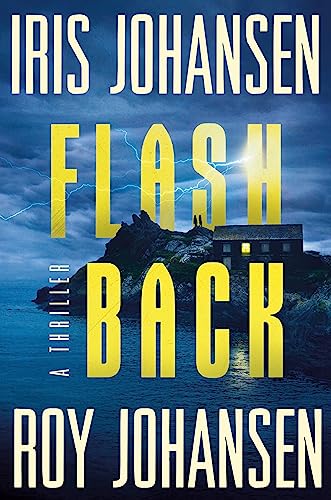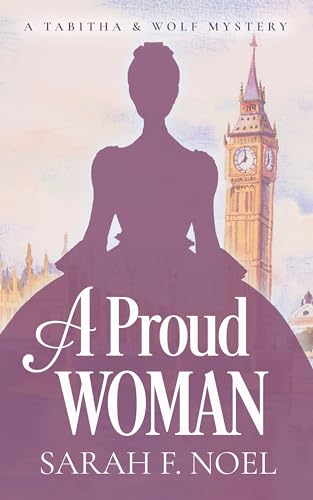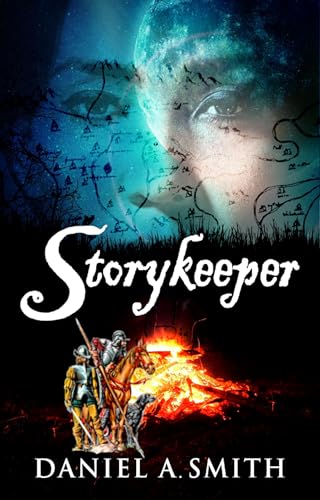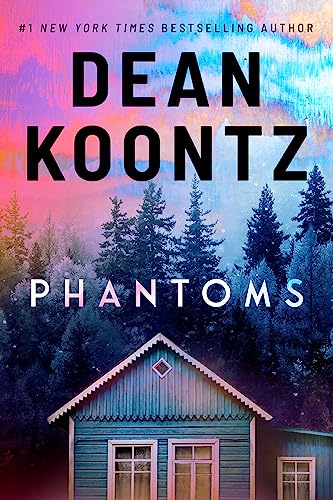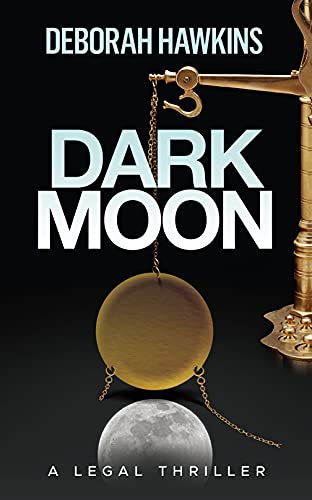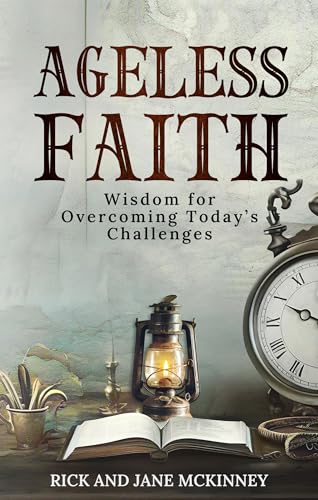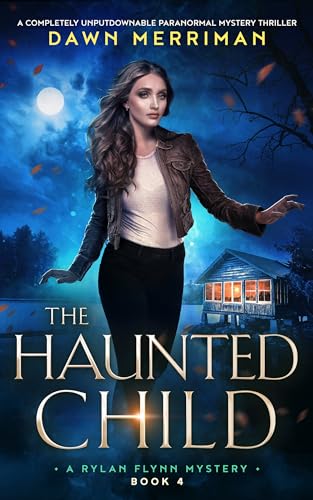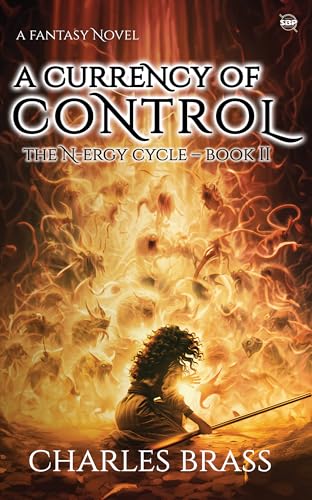This short story is a work of fiction. Names, characters, places and incidents are either products of the author’s imagination or used fictitiously. Any resemblance to actual events, locales, or persons, living, dead, or undead, is entirely coincidental. All rights reserved. No part of this publication can be reproduced or transmitted in any form or by any means, electronic or mechanical, without permission in writing from the author. Copyright © 2009 by Robin Sloane
IT’S 2:02 A.M. ON A COLD SUMMER NIGHT.
I’m sitting in a book store next to a strip club.
Not that kind of book store. The inventory here is incredibly old and impossibly rare.
And it has a secret-a secret that I might have just discovered.
I am alone in the store. And then, tap-tap, suddenly I’m not.
And now I’m pretty sure I’m about to snap my laptop shut, run screaming out the front door, and never return.
* * *
I SHOULD START AT THE BEGINNING.
I lost my job in the slumped-over spring of 2009. I applied for dozens of replacement gigs but was rebuffed, again and again. And I took only the coldest comfort when the companies doing the rebuffing were, themselves, forced out of business months later. I probably couldn’t have turned them around single-handedly. Probably.
The job I lost was at the corporate headquarters of the New Amsterdam Bagel Bakery. I designed bagel marketing materials. Menus, coupons, posters for store windows, and, once, an entire booth “experience” for the bagel industry trade show.
I also ran the website.
Now, months into my unemployment, I’d started watching for “help wanted” signs in windows, which is not something you really do, right? I was taught to be suspicious of those. Legitimate employers use Craigslist.
And sure enough, the 24-hour book store did not have the look of a legitimate employer:

Now, I was pretty sure that “24-hour book store” was a euphemism for something. It was on Broadway, in a euphemistic part of town. I spotted it on my way to a bar with a “recession special” happy hour. The place next door had a sign with neon legs that crossed and uncrossed.
But inside-yes, of course I went inside-it wasn’t sketchy at all. Just the opposite: It was stuffy.
Stuffy and claustrophobic. Imagine the volume of a normal store turned on its side: It was absurdly narrow and dizzyingly tall. And the shelves went all the way up-five stories of books. The whole place was dim and dusty; you couldn’t even really see the ceiling.
There were ladders that clung to the shelves and rolled side-to-side. Those usually seem charming, but here, stretching up into the gloom, they just seemed ominous. No way would I even touch one of those ladders.
Unless, of course, I filled out the application for the open clerk position, and pressed it into the wrinkled hands of Mr. Penumbra, the shop’s owner, and pleaded my case, citing my senior thesis on Swiss typography (1491-1519), and started to argue for the graphic novel as serious literary form (as well as boon to a bookseller’s business, because you know, kids these days, they’re growing up with manga, and I could help you out with that, I could stock a whole new section)-
In which case, if I did all that, old Mr. Penumbra might have pinched his eyes, looked me up and down, and said, “Well, that’s all fine… but can you climb a ladder?”
If all that happened, I might then, hypothetically, find myself on one of those ladders, on the third floor, minus the floor, of Penumbra’s 24-Hour Book Store.
The book he’s sent me up to retrieve, “de Guilford’s Inquiry,” is about 130% of one arm-length to my left. Obviously, I need to return to the ground and scoot the ladder over. But down below, Mr. Penumbra is shouting: “Lean, my boy! Lean!”
And boy, do I ever want this job.
* * *
SO, THAT WAS A MONTH AGO.
Now I’m the night clerk at Penumbra’s, and I shimmy up and down that ladder like a monkey.
You should see me lean.
If I’m retrieving two books, I’ll place the ladder halfway between them, dash up, and then, forty feet off the ground, I’ll clamp a hand on one of the rails, and lean way out so
my arm
my body
and the ladder
form a skinny right triangle.
If I do this on both sides of the ladder, I can stretch across a span of a hundred books. It’s fun.
Unfortunately, I am not required to do it very often
.
Let me tell you: Penumbra’s 24-Hour Book Store does not operate around the clock due to an overwhelming volume of book-buyers.
In fact, whole nights go by without a single customer. Just me, my laptop, and the dusty heights.
But oh. That single customer.
There is, I have learned, a community of very strange men clustered in this part of San Francisco. They visit the store late at night. They come wide awake, and completely sober. And they are always nearly vibrating with need.
For example:
The bell on the door will tinkle and before it’s done, Mr. Tyndall will be shouting, breathless, “Kingslake’s! I need Kingslake’s!” He’ll take his hands off his head (has he really been running down the street with his hands on his head?) and clamp them down on the front desk.
“Kingslake’s! Quickly!”
Mr. Penumbra has a database, believe it or not. The books aren’t shelved according to title or subject (do they even have subjects?) so the database is crucial. It runs on an old Mac Plus, but I copied it onto my laptop and, over the course of a few customer-free nights, mapped it onto a 3D model of the store. (If this sounds impressive to you, you’re over 30.)
So now I will just type in K-I-N-G-S-L-A-K-E and the model will rotate and zoom in on aisle 3, shelf 13, which is only about thirty feet up.
“You have it? Oh thank goodness, thank you, yes, thank goodness,” Tyndall will say, almost whimpering. “How much?”
And this is the crazy part. I haven’t sold a book in this store for less than two hundred dollars. Many are much more expensive than that. Penumbra’s database will tell me that “Investigations” by Reynold Kingslake is $1,800.
Not a blink.
After I do my monkey business on the ladder, Tyndall will write a prim check and slide it across the desk. “Thank you,” he will breathe, and then the bell will tinkle again as he hurries back out onto the street. It will be three in the morning.
* * *
THEY ALWAYS PAY. Not one has ever balked. Where do these weird old men get all this money?
This is one of the things I ask myself when I sit here alone, after Mr. Tyndall or Mr. Raleigh or Mr. Fedorov has left. I think I know them all at this point. I think of them as a strange fellowship, but I have no evidence that they know each other. Each comes in alone, and never says a word about anything other than the object of his current, frantic fascination.
I have no idea what’s in those books they pay all that money for. In fact, it’s part of my job not to know. After the ladder test, back on the day I was hired, Mr. Penumbra said:
“This job has three requirements, each very strict.”
1) “You must always be here from 10 p.m. to 6 a.m. exactly. You must not be late. You cannot leave early.”
2) “You may not read, examine, inspect, or otherwise touch any of the books in this store-unless you are retrieving it for a customer.”
I know what you’re thinking: Dozens of nights alone, and you’ve never cracked a cover?
No, I haven’t. For all I know, Penumbra has a camera somewhere. If I sneak a peek and he finds out, I’m fired. My friends are dropping like flies out there; whole industries, whole parts of the country, are shutting down. I need this job.
And besides, the third rule makes up for the second:
3) “You must keep precise records of all purchases. Time. Amount. The customer’s appearance. His state of mind. How he asks for the book. How he receives it. Does he appear to be injured. Is he wearing a sprig of rosemary on his hat. And so on.”
I guess under general circumstances, this would feel like a creepy job requirement. Under the actual circumstances-selling rare books to mad scholars in the middle of the night-it feels perfectly appropriate. So, rather than spend my time staring at the forbidden shelves, I spend it writing about the customers.
The basics-which book was purchased, its price, the time-go into the database. The rest goes into a giant, leather-bound logbook. It’s all mine; Mr. Penumbra pulled it out from under the front desk on my first night, heaved it open, and, on the first page, he wrote my name.
I have to say, I feel pretty proprietary about this book. I try to take clear, accurate notes, with only an occasional literary flourish. On quiet nights, I describe the weather.
Sometimes I draw pictures, like this one, of Mr. Tyndall tonight:

So I guess you could say rule number two isn’t quite absolute. There’s one book I’m allowed to touch in Penumbra’s 24-Hour Book Store. It’s the one I’m writing.
* * *
MR. PENUMBRA WORKS THE DAY SHIFT. He starts at 6 and finishes at 10 p.m., if you can believe it. That’s a long day for an old man. I see him every night and every morning. If we’ve had a customer, he usually compliments me on my observations, but then probes even deeper.
“Very good rendering of Mr. Raleigh,” he’ll say. “But tell me, do you remember, were the buttons on his coat made of mother-of-pearl? Or were they horn? Or some kind of metal? Copper?”
I have to admit: It does seem strange that Mr. Penumbra wants all this information. But when people are over a certain age, you sort of stop asking them why they do things. It feels dangerous. What if you say, so Mr. Penumbra, why do you want to know about Mr. Raleigh’s coat buttons?, and he pauses, and scratches his chin, and there’s an uncomfortable silence-and we both realize he can’t remember?
Or what if he flies into a rage and fires me on the spot?
It’s true that I can’t really imagine him enraged. However, it’s also true that my roommate Dan just got laid off last week and he’s probably going to move back to Sacramento. In this economic environment, I prefer not to test old Mr. Penumbra’s boundaries.
Mr. Raleigh’s coat buttons were jade.
* * *
DURING THE DAY, after my shift at the store but before my vampiric afternoon sleep, I spend a lot of time at the cafe down the street from my house. It’s called “Supply and Demand.”
The gimmick is that during the day it’s “Supply,” a coffee shop, and at night it turns into “Demand,” a bar. The bar is a total meat market, but the coffee shop is efficient and well-regulated.
So that’s where I was, sitting at a tiny table, slurping one of those giant mugs the size of your face, working on my 3D model of the store.
I’d souped it up so it could show you not just where the books were located, but which were sold, and to whom. They lit up like little lamps in the blocky 3D shelves. They’re color-coded, so the books purchased by Mr. Tyndall lit up blue, Mr. Raleigh’s were green, Fedorov was yellow, Imbert orange, and so on.
But now the shelves were disappearing when I rotated them too far. So I was sitting there, trying to figure out why, when a voice piped up from over my shoulder:
“Are you into data visualization?”
I turned. Why yes, girl with chestnut hair cropped to your chin and a red t-shirt with the word “BAM!” printed in mustard yellow, I am into data visualization.
“Me too,” she said. “Actually, I do it for a living. I work at Google.”
Google! This girl must be a genius. Also, one of her teeth is chipped in a cute way.
Well, take a look at this, I said.
She sat down and I showed her the bug in my book store. Soon her hands were on the keys, fluttering through my code, which was a little embarrassing, because my code is full of comments like “hell yeah!” and “now, computer, it is time for you to do my bidding.”
But Kat (her name was Kat) thought it was cute, and she was, in fact, a genius. She tracked down the bug and fixed it in the time it took me to drain my mug. And then, tap-tap, she made the shelves render more realistically, with a cool sort of wood-grain texture.
Then she said, “Have you thought about doing a time-series visualization?”
This sounded like a nerd’s way of asking another nerd out on a date, so I said I hadn’t, but that I was super interested. We made plans to meet at Supply and Demand the next day.
* * *
THAT NIGHT, AT THE BOOK STORE, I started working on the new visualization, thinking I could impress Kat with a prototype. I am really into the kind of girl you can impress with a prototype.
The idea was to animate through the purchases over time instead of just seeing them all at once. I got a simple version working by midnight, and immediately I noticed something.
The lights were following each other.
Mr. Tyndall would buy a book from the top of aisle 3. Three days later, Mr. Raleigh would do the same. Not the same book (Penumbra’s has only one copy of anything), but one very close. Another week, and Mr. Fedorov would follow-even though Mr. Tyndall had already come in again and gotten something from the bottom of aisle 1. He was a step ahead.
I’d never noticed the pattern because the purchases were so spread out. Imagine hearing a piece of music with six days between each note. But here, sped up, it was obvious. And it was as if they really were all playing the same piece, or dancing the same dance, or solving the same puzzle.
Maybe some were just better at it than others?
The bell tinkled. It was Mr. Imbert-solid, compact, with his bristly black beard and sloping newsboy cap. In a hurry, I scrubbed through the visualization to find his place in the pattern. An orange light bounced across my laptop’s screen, and before he said a word, I knew he was going to ask for a book right in the middle of aisle 2. Maybe a book like Prokhorov’s-
“Prokhorov’s Interpretations!” Imbert wheezed. “It is essential!”
Halfway up, I felt dizzy. What was going on? No daredevil maneuvers this time; it was all I could do to stay on the ladder as I pulled the slim, black-bound volume off the shelf.
It was a bargain at $300. The bell tinkled, and I was alone again, and for the first time, Penumbra’s 24-Hour Book Store felt not just strange, but sinister.
* * *
BACK AT SUPPLY AND DEMAND. The air is crackling with wi-fi; Kat and I are having the only spoken conversation in the entire place.
She’s wearing the same red-and-yellow “BAM!” t-shirt as yesterday, which means a) she slept in it, b) she owns several identical t-shirts, or c) she’s a cartoon character-all of which are appealing alternatives.
I don’t want to come out and confess that I work at the official book store of the da Vinci Code, but I do want her mega-brain applied to this problem. So I just play the visualization.
“You made this last night?” she says. “Impressive.”
We watch the lights curl around each other. We watch again. And again.
Kat bites her lip and thinks hard, which is very attractive. “You know,” she says, “something about this looks… recursive.”
I have nothing to contribute at this point.
She says: “But there aren’t that many data points. We might just be making up the pattern. Is there some other series we can add to the visualization?”
Well, I say, I’ve got this big leather logbook. But it’s not really data… just descriptions. And it would take forever to type it all into the computer, anyway.
Kat’s eyes light up. “A natural language corpus! And an excuse to use the book-scanner! Want to bring it down to Google tomorrow?”
Her lips make a pretty shape when she says “corpus.”
* * *
NOW, MR. PENUMBRA HAS NEVER specifically forbidden me from taking the logbook home.
But he hasn’t specifically forbidden me from inviting all my friends over for an after-hours book store party, and I’m pretty sure that’s not allowed, either.
Anyway, he only checks the logbook if I tell him something interesting happened during the night.
Nothing interesting happens during the night.
There’s a tiny flashlight attached to my keychain, and I shine it around the store, looking for the tell-tale glint of a camera lens. (They do this in movie theaters, to find pirates! And in the army. To find snipers.)
Not a single thing glints in Penumbra’s 24-Hour Book Store.
I can’t stop squirming. If fidgets were Wikipedia edits, I would have completely revamped the entry on “guilt” by now, and translated it into six new languages.
Finally, it’s quarter to six. The thinnest tendrils of dawn are creeping in from the east. Friends in New York are logging onto the internet and posting funny links.
I close my laptop, sweaty palms flat on the lid. Here’s the plan: Instead of returning the logbook to its slot in the front desk, I’m going to put it in my messenger bag, in the laptop compartment. My laptop will stay at the book store today, tucked into the logbook’s slot.
I have a hundred explanations (with branching sub-plots) if Mr. Penumbra nabs me.
The bell tinkles. “Good morning,” he says. “How was-“
No customers quiet night gotta go Mr. Penumbra see you later. I say it in one breath, already moving. I try to look ill, which isn’t hard, because I feel terrible.
He pauses, then smiles a lopsided old-man smile. “See you tonight.”
I’m out the door, and twenty minutes later, I’m on the train to Mountain View, clutching my bag, and my book, to my chest.
The rumble and sway puts me to sleep.
* * *
WHEN I WAKE UP, Google is nothing like I imagined.
The main campus is a crystal castle, spiking up out of the gray lawns of Silicon Valley and glinting blue-green in the morning sun. This isn’t a metaphor. It’s really crystal, and it looks organic, not architectural. Google grew it.
Kat is explaining all of this to me right now.
Offices started as tents and pavilions. Roads and sidewalks were marked off with chalk and string. The crystal grew over and around all of that, like a coral reef. But it’s not for looks, and it’s not structural, either. It’s functional. The crystal is somehow computer memory, processing power, and fiber-optics all in one. It radiates wi-fi. It runs on sunlight.
Kat points a long, brown arm towards the tallest crystal spike, gleaming at the very center of the campus. “That’s one of our database shards,” she says. “Your email is in there. Along with every video on YouTube. A bunch of DNA sequences. And almost every book ever written.”
Mr. Penumbra’s shelves don’t seem so tall anymore.
Wide walk-ways curve into the crystal campus. Kat leads me to a low, rectangular tent. There’s a hand-written sign pinned to the canvas: “BOOK-SCANNER.”
* * *
The inside of the tent feels like an army field hospital. The hardware is all very hard. Lots of wires and clamps. Harsh flood-lights look down on an operating table surrounded by long, many-jointed metal arms. The air stings like bleach.
And there, patiently waiting, are the books. Stacks and stacks of them, piled high on metal carts. Big books and little books. New best-sellers and old tomes that would fit in at Penumbra’s.
The Googler presiding over all of this looks like a college freshman. His name is Jad.
“Kat warned me this might be a challenge,” he says. “But we’ll see. The scanner’s pretty good.”
He sets my logbook up on a metal frame and tells us to step back. His fingers go tap-tap behind a bank of monitors, and the book-scanner leaps into action.
The flood-lights start strobing, turning everything in the tent into a stop-motion film. Frame by frame, the scanner’s spidery arms reach down, grasp page corners, peel them back. I’ve never seen anything at once so fast and so delicate. The arms-I can’t tell if there are four or eight or sixteen-stroke the pages, caress them, smooth them down. This thing loves books.
At each flash of the lights, two giant cameras snap images in tandem. I sidle up next to Jad, where I can see the pages of my logbook stacking up on his monitors. The two cameras are like two eyes, so the images are in 3D, and I watch his computer lift the words right up off the pages. It looks like an exorcism.
Jad’s fingers go tap-tap again. “Wow, we need to allocate more processing power,” he says.
Because the data is so complex?
“No,” he says. “It’s your handwriting. It’s really bad.”
Okay. I walk back over to Kat, who’s leaned over as close to the book-scanner as you can get without risking a metal arm in the eye.
“This is awesome,” she breathes.
It really is. I feel a pang of pity for my logbook. All of its secrets, coaxed out in five minutes flat by this super-smart hurricane of metal and light. Books used to be pretty high-tech, back in the day. Not anymore.
* * *
I WALKED AWAY EMPTY-HANDED.
Which is to say, I walked away with the knowledge that the high-resolution images of my logbook, along with the digitized text and Jad’s analysis of that text, were waiting for me in Google’s crystal database, accessible anywhere, anytime.
Like right now.
It’s 11 p.m., I’m rested after an afternoon of strange, spidery dreams, and I’m ready to visualize.
I retrieve Jad’s analysis via an unprotected wi-fi network from next door named “bootynet.”
Now, computer, it is time for you to do my bidding.
By 2 a.m., I’ve got the new data piped into my visualization, and by 2:02 a.m., I am ready to run screaming out the front door of the store.
* * *
HERE’S WHAT I SEE:
1. The store, looking very nice in 3D, with a convincing wood-grain effect.
2. Just as before, a swarm of colored lights bounce through the shelves; each one is a customer.
3. But now a set of symbols have joined them: a tiny fedora for customers with hats, a cartoon rose for customers who smell (good and bad), a little Eiffel Tower for customers who mutter to themselves in French. There are a million ways to describe these guys; Jad’s algorithms have read them all out of my logbook and organized them into categories. So now I see those categories move through the shelves, too.
The lights and the symbols all leave trails. The trails are like brush-strokes. And if I rotate the 3D model so that, on my screen, I’m viewing the store from the perspective of the front desk-from where I’m sitting right now-the brush-strokes fit together. They form a picture.
It’s a face.
It’s a face I know.
It’s a picture of Mr. Penumbra.
* * *
THE BELL TINKLES and he walks into the store. A coil of fog follows him.
Why I haven’t fled, I don’t know. Dark curiosity, maybe. Or a lingering sense of clerkly responsibility.
Tonight, a computer program showed me a picture of Mr. Penumbra. A computer program that I did not design to show me pictures of people. And definitely not pictures of wrinkled, old-
Actually. Wait. I realize now, as I see him in the gray morning light, that I have made the common mistake of assuming that all old people look alike. The picture drawn out by the data on my screen isn’t Mr. Penumbra. Same nose, but Mr. Penumbra’s mouth is wider. His cheeks are rounder.
“Good morning,” he says. “How was-“
I have to tell him. It’s a terrifying thought, but the alternative is to sit quietly at my desk as a vortex of weirdness spirals around me. (That describes a lot of jobs, I realize, but this is potentially a special kind of magick-with-a-K weirdness.) Well, that or quit.
So I swivel my laptop and tell Mr. Penumbra I have something he should see, if he’s interested, but if not, you know, no big deal, we could always do it tomorrow, and-
He’s interested.
He holds his glasses at an angle and peers down at my screen. At first, his face is slack, and I’m afraid he doesn’t understand what I’m showing him, or that the tiny lights have given him a tiny stroke.
But then he says, quietly: “Hello, Elzevir.”
* * *
I THINK HE’S ABOUT TO FLY INTO A RAGE. He looks like I feel when I’m about to fly into a rage: skin pulled tight across the cheeks, mouth not working like it’s supposed to. I’m not afraid of him-leaning in close like this, I’m reminded how old he is-but maybe I should be.
The bell tinkles. We both turn.
It’s Kat.
“Oh… hey,” she says. She can tell something’s up; there’s tension in the air, to go with all the dust.
Mr. Penumbra turns back to me with narrow eyes.
“Go,” he says. “See you tonight. 10 p.m. sharp.”
* * *
I EXPLAIN EVERYTHING to Kat over waffles. I’m feeling particularly warm towards her at the moment, as her timely intervention might have saved my life. Or at least my job.
I show her the new visualization, and the creepy old face. The face of Elzevir.
“Well,” she says, “this is probably a world-record. Most labor-intensive steganography ever.”
Steganography?
“Putting a hidden message where nobody would think to look for a hidden message. This qualifies, big-time. Sure, it’s amazing that these guys are acting out this picture, week after week. But who would even think to record their habits in the first place?”
Well, technically, that would be Mr. Penumbra. See: rule number three. My job.
She pokes her fork at me. “There’s no question, then. You were supposed to find this.”
Funny. The look on Mr. Penumbra’s face didn’t exactly say “congratulations.”
* * *
THE NIGHT THAT FOLLOWED was my last at the book store.
When I arrived, Mr. Penumbra emerged from the shadows of the shelves and dropped himself down at the front desk like a sack of potatoes. The oldest, thinnest sack of potatoes you have ever seen. The sack of potatoes you would never buy at the store, even if you were going to a potato party and just needed a lot of potatoes, no matter what.
“This is very strange,” he sighed, “but not entirely surprising.”
I thought, but didn’t say: Oh, I’m pretty surprised. By the ancient human face on my computer screen.
“You realize,” he said, looking up at me with those narrow eyes again, “it doesn’t work this way. There are no shortcuts.”
I said nothing.
“An investigation of the fellowship must be done on paper. It must produce a book.”
Please allow the following series of question marks to represent the blankness of my stare:
?????
Mr. Penumbra cocked his head. He said, “Haven’t you read any of the volumes here?”
Of course not! Mr. Penumbra, that’s rule number two! Don’t read the books. My cousin just moved to Florida because they’re closing the state of Michigan! I follow the rules.
He laughed a little, and shook his head. “I guess it’s one thing for a computer to help you find the answer,” he said. “But we’ve now arrived at a point where you don’t even need to ask the question anymore.”
Well, what, uh, what’s the question?
“The book store is the first question,” he said, and raised his arms, as if to circle the strange space around us. “Why does it exist? Why does Mr. Tyndall buy a book at midnight on the 9th of June, and why is he wearing green rubber boots when he does it? You’re obviously curious.”
I nodded.
“But the final question,” he said, “is how do you live forever?”
* * *
“WELL,” Mr. Penumbra said, “I need to consider what comes next.” He stood. “This will be your last shift. Please close the store in the morning. I will send your final paycheck.”
The bell tinkled. He disappeared into the fog.
No. No! He didn’t fly into a rage, but I still got fired.
There were no customers that night. When it was time to go home, I flipped through the bank of light switches-I didn’t even know there were light switches-and watched the gloomy shelves disappear, one by one.
It felt like dousing a lighthouse.
* * *
MY FINAL PAYCHECK CAME IN THE MAIL, as promised.
It was for $300,000.
Yeah.
There was also an invitation. Written in Mr. Penumbra’s hand, it said: 303 Clement Street. Friday. 10pm.
* * *
IT WAS A BURMESE RESTAURANT called Mega Mandalay with a sign on the door that said CLOSED FOR SPECIAL EVENT. Inside, everything was warm and golden.
They were all there. Mr. Penumbra at the head of the table, flanked by Tyndall, Raleigh, and old Fedorov. There were many more I didn’t know, men who seemed even older still. Some in crazy costumes: tunics, tuxedos, salwar kameez. Even a few women; one had her gray hair styled in a sort of Vulcan bowl-cut. They were all jabbering at each other, waving their arms and laughing. They all seemed happy.
Penumbra saw me as I walked in. He rose: “My brothers and sisters! Here’s the one who didn’t bother to write a book!” They all clapped, and there was some cheering, and Imbert whistled.
Penumbra motioned for me to sit beside him. I expected everyone to stay focused on me, as I had clearly just solved some Indiana Jones-caliber mystery of the ages. But they were all still jabbering and laughing. It felt like a reunion.
“You are in the presence,” Penumbra said, “of a fellowship more than 500 years old. We have been around for as long as books have.”
Tyndall leaned in from Penumbra’s other side: “A brotherhood bound by binding!”
“It was conceived by Mr. Elzevir,” Penumbra continued, and motioned to the other end of the table, where the ancient face from my computer screen was grinning and hoisting a tall glass of beer. Wow.
“He imagined a society devoted to the great promise of the book: That by writing, you can earn a kind of immortality, as your words pass into other minds, far removed from your own by distance and time.”
“And,” Fedorov said, his mouth full of rice, “when accompanied by certain numerological rites”-pause to swallow-“bibliographic longevity can be converted to biological longevity, as well.”
“Yes,” Penumbra said, “I suppose that’s the important part.”
“No kidding,” I said quietly.
“Some would say our society has, ah, devolved,” Penumbra said, “for we now read only the books written by our membership. Books which are filled only with observations of other members. And references to other books filled only with observations. And so on.”
Tyndall leaned in: “No Proust here!”
“But the formula persists,” Penumbra said, “and so do we.” He was silent a moment. “Until now.”
* * *
I TOLD THE STORY TO KAT later that night. The tea-leaf salad hadn’t quite soaked up all the beer, and she was a little confused and weirded-out when I rang her doorbell at three in the morning, but now I was trying to be as clear as possible:
Mr. Penumbra knew that books wouldn’t last forever. He knew something else would come along. But for the longest time, nothing did.
If I’d gone to work at the store ten years ago, or a hundred (it wasn’t in San Francisco then; it was in London) maybe I would have started noticing the patterns without the help of a computer. Maybe I would have started sneaking peeks at the books, copying out passages, finding connections. Maybe I would have drawn Elzevir’s face in pen, on paper. (It would have taken years.)
If I’d done all that, maybe I would have joined the fellowship. Maybe I would have become one of them.
Instead, I used a laptop. I used Google’s book-scanner. I made something fundamentally incompatible with 500 years of history: a computer program.
I broke the spell.
“I don’t get it,” Kat said. We were sitting at her kitchen table, cradling mugs of tea. “Why couldn’t the visualization just be your ticket to immortality?”
I was surprised that she asked, because even I knew the answer. Computer programs don’t have the same longevity. It was doubtful somebody could get my visualization to run in six months, let alone six years, or six hundred. There was something very special about the book and the way it lasted. The way it got passed from hand to hand, from mind to mind.
Until now.
There was a long silence.
“So,” she said softly, looking down into her mug, “what happens to Mr. Penumbra? And the rest of them?”
He said he’s closing the store. He said the fellowship would fade away-not all at once, but gradually.
And then he said one more thing, as we were all leaving the restaurant.
* * *
“HERE’S THE TRICK, MY BOY,” Mr. Penumbra said, wrapping his long, thin arm around my shoulder. The halo of gray hair around his head was a little messed up. He was a little drunk.
“Forget the store. Forget the numerological rites. Just make something that will last. And then, in a hundred years, or a thousand, someone will find it, at three in the morning, exactly when they need it most. And you’ll live again.”
I must have looked dubious, because he said:
“Just because it’s changing doesn’t mean it’s over. Your Google genius and her friends will build new kinds of books. All of us in the fellowship, we’ll live again. We’ll meet here, at this restaurant. There will be samosas, and tea-leaf salad, and more beer-“
(Tyndall heard this from further up the sidewalk, and shouted to the sky: “More beer!”)
“-and we’ll all live again.” He paused. “But your place at the table isn’t assured. Not yet.”
He let me go, and smiled. “You’d better be there.”
And then they all disappeared into the fog.
* * *
SO WHAT NOW?
There’s a FOR LEASE sign stuck to the front of the 24-hour book store. Inside, it’s empty.
I’m dating Kat, and I try to talk about things other than strange old men and immortality.
I spent my huge Penumbra payout on an apartment. A tiny, tiny San Francisco apartment.
And I found a new job, just part-time, making animated web advertisements for the one insurance company that’s still in business.
With the other part of my time, I’m researching the life of a guy named Ajax Penumbra. I’m trying to piece it all together, trying to understand him.
It turns out he knew a lot of people in this town. It’s just that most of them died in 1906.
But I’m following the clues, one by one. What will I make of it all? A book? A movie? Super Book Store Bros., the video game? I don’t know yet. But I’m going to try to make it so wonderful that somebody else will want to carry it into the future for me. And then hand it off to somebody else. And somebody else after that.
Because I’ve got to meet old Mr. Penumbra for dinner.
* * *
* * *
* * *
ACKNOWLEDGMENTS
Thanks to Rachel Leow for a tweet on November 15, 2008: “just misread ’24hr bookdrop’ as ’24hr bookshop’. the disappointment is beyond words.”
Thanks to Andrew Fitzgerald for feedback on an early version of this story.
Thanks to Betty Ann Sloan and Jim Sloan for feedback on an early version, and for special investigations into book-leaning.

